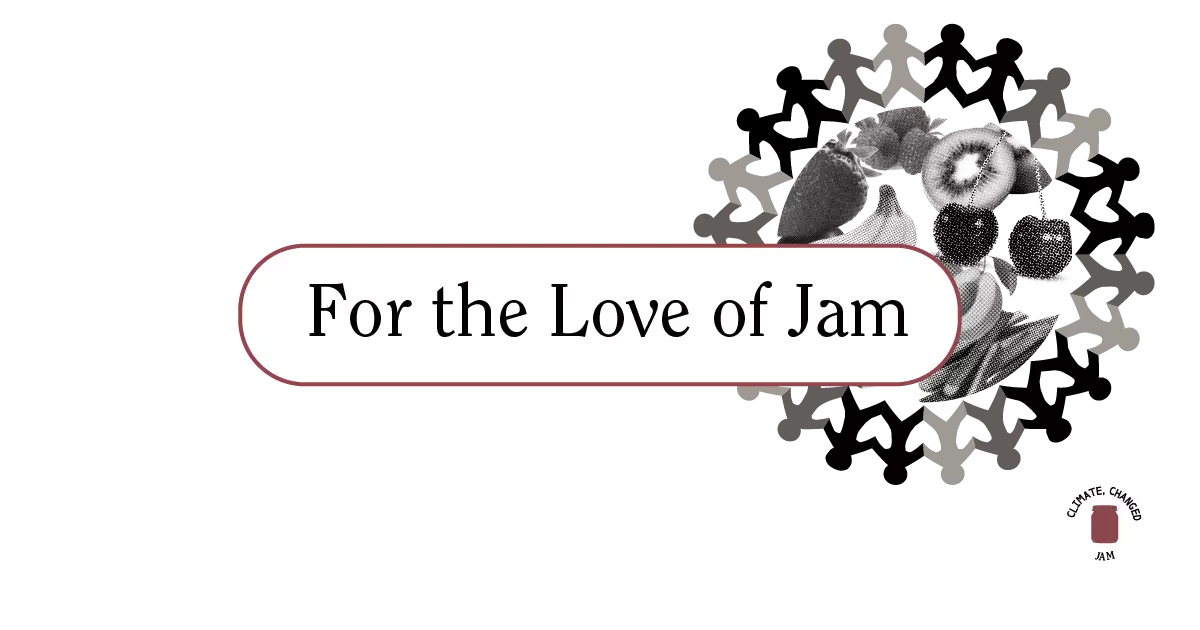FOR THE LOVE OF JAM
For our final installment of Climate, Changed, we unpack business legacy. Find out how five jam producers across the U.S. redefine what sustainability jam-making—or really, anything-making—looks like in a dangerously warming world. Love might just be enough.
A warm thanks to the producers who provided their insights over the summer of 2021:
• Ayako & Family’s Alessandra Gordon, Seattle
• BRINS’s Kristyn Swingle, Brooklyn
• INNA’s Dafna Kory, Emeryville
• Jamboree Jams’ Sara Levasseur, New Orleans
• Trade St. Jam Co’s Ashley Rouse, Brooklyn
For you, what does sustainable jam making look like?
INNA: From the very beginning, INNA jam has been a project rooted in sustainability.
On an environmental level, we source organic fruit that are in geographical proximity to us. The organic sourcing reduces the pesticide, herbicide, fungicide, and synthetic fertilizer load in the environment. The geographic proximity of our crops reduces the amount of fuel necessary to transport them, reducing the carbon footprint. We strive for environmental sustainability at every step of our production: from a zero waste process in our kitchen, to compostable packaging materials, to a waste stream diversion program.
On an economic level, we source from small farms and buy our fruit directly from the farmers. This increases the income that makes its way to the farms, helping to improve the sustainability of small scale agriculture in our region and community.
On a social level, we create a healthy and respectful work environment, and support our team.
On a very basic level, we won’t be able to do much good if we fail as a business. So the question for me is also, how do I sustain INNA and keep it thriving? The answer for me is to keep INNA small, to intentionally not grow the business. I realize that this goes counter to the dominant business ideology! But why is growth always the measure of success? Can we instead measure work’s success by the consistency and quality of the work we produce, and by our respect and care for the people and environment who are part of the work? I think it’s time that as a society we change our value metrics. That’s what sustainable anything-making looks like to me.
But why is growth always the measure of success? Can we instead measure work’s success by the consistency and quality of the work we produce, and by our respect and care for the people and environment who are part of the work?
Ayako & Family: Sustainable jam making means creating sustainable relationships. It means creating a sustainable platform for our community members to thrive, like our farmers and our staff. It means equitable wages and centering the health and joy of QBIPOCs in the process. It means honoring our integrity by sharing my mother’s legacy, a Japanese immigrant and visionary femme who made food for the community as a means of survival. It means honoring her by not merely tokenizing our identity as it pertains to our resilience and survival. It means intentionality in our sourcing and heeding to our farmers when we see shifts in their capacities. It’s honoring the fruit. It’s in honoring the excitement and shared nostalgia that a jar of preserves may offer over time.
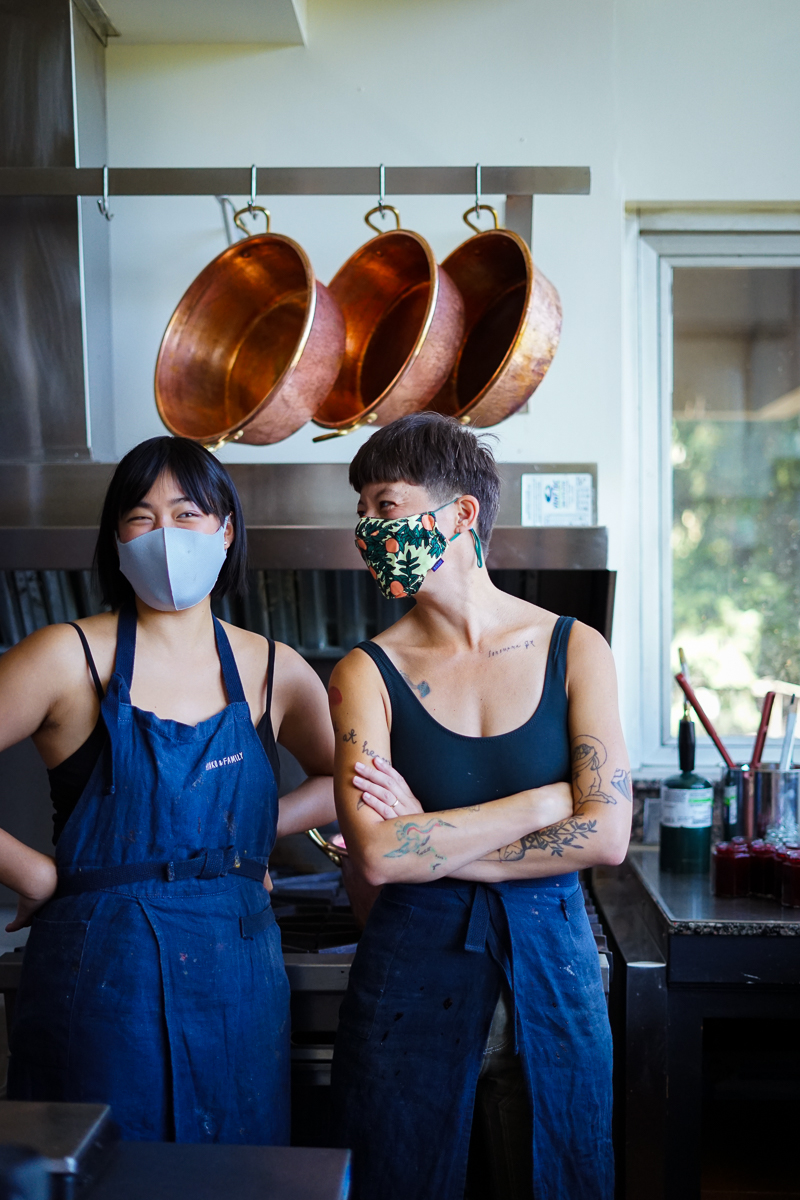
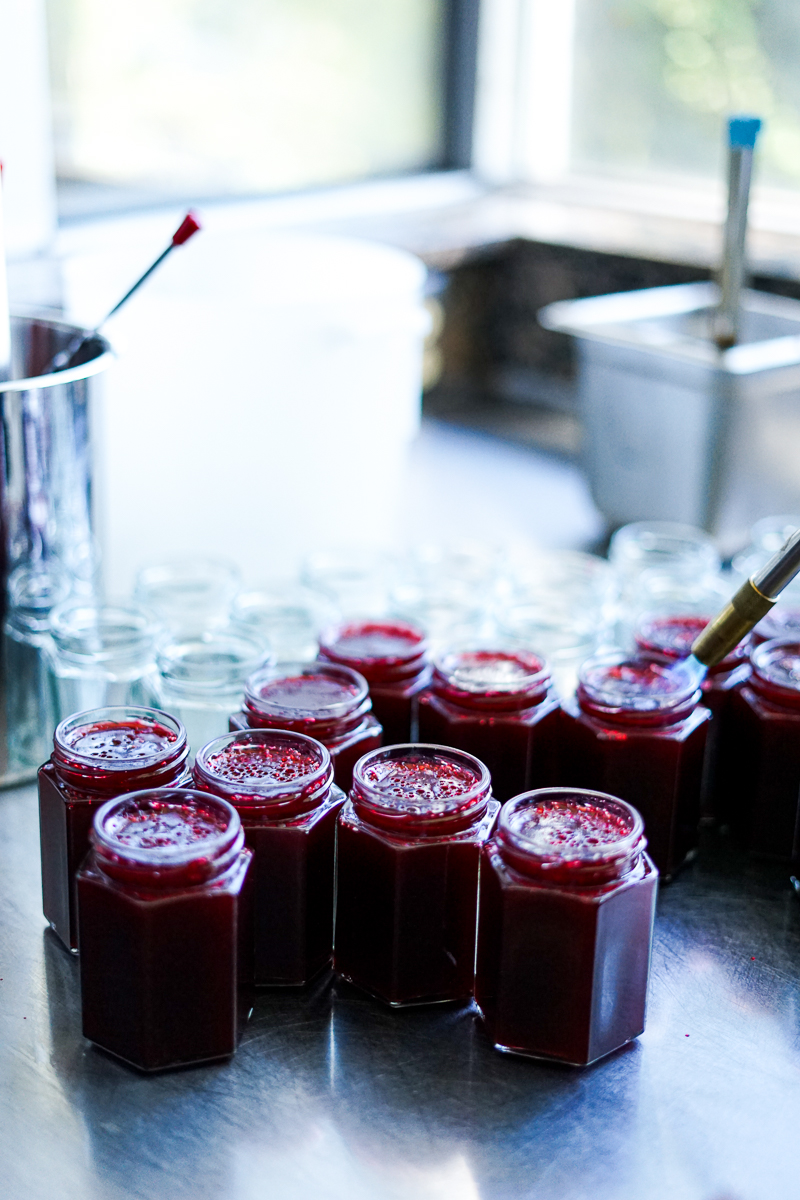
Jamboree Jams: To me, sustainable jam making means paying attention to the particulars of each fruit season in each new year and adjusting to those parameters rather than trying to force the fruit to adjust to our parameters. We have a dedicated kitchen and workspace (2352 St Claude Ave) now so I am looking forward to being able to take on more fruit. I've had farmers offer me the rest of their satsumas if I come pick them off the trees (otherwise they let them fall) but haven’t been able to take them up on the offer due to lack of access to a workspace. It's also interesting to think about jars as a vessel. New Orleans doesn't offer glass recycling so I'm looking forward to having a storefront and being able to accept jar returns or pointing people to Glass Half Full, who is making sand from glass to help during storms.
Trade Street Jam Co.: Sustainable jam making means listening to what local farmers are saying about environmental changes and being flexible in the way we work with them. We're also dedicated to responsible packaging, recycling promotion, and waste management.
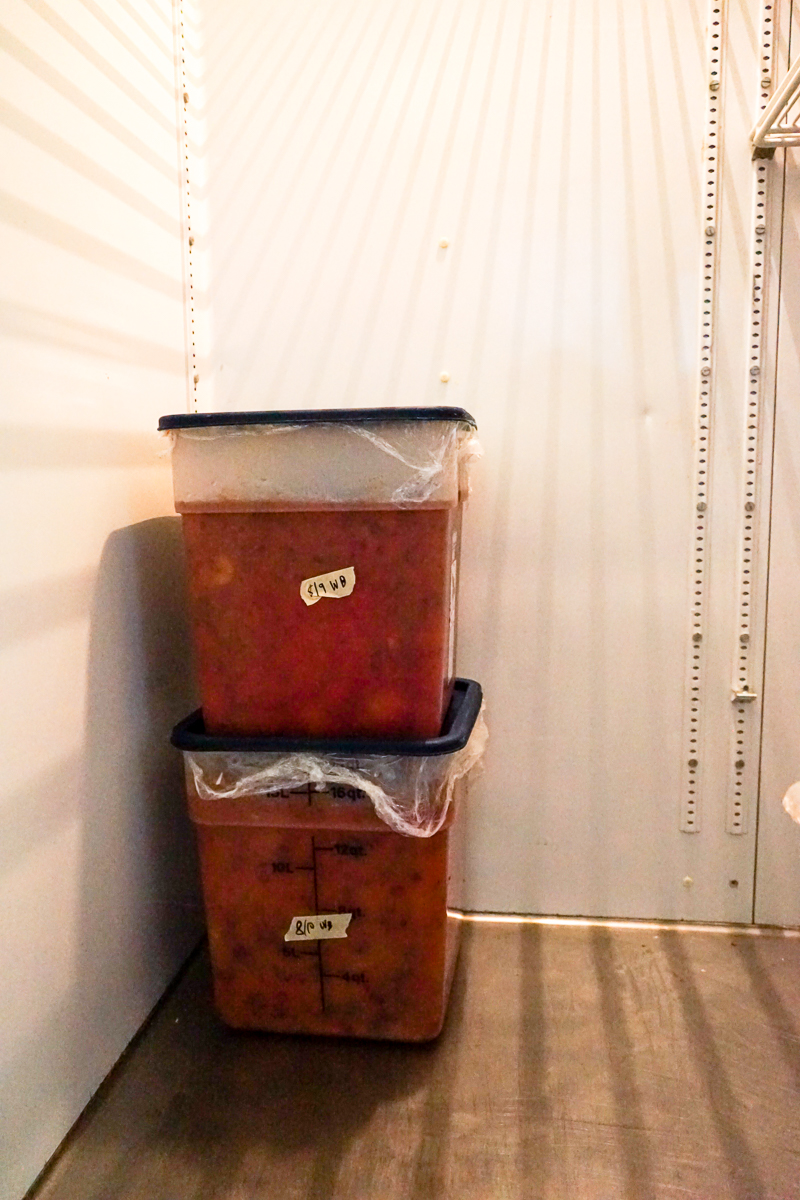
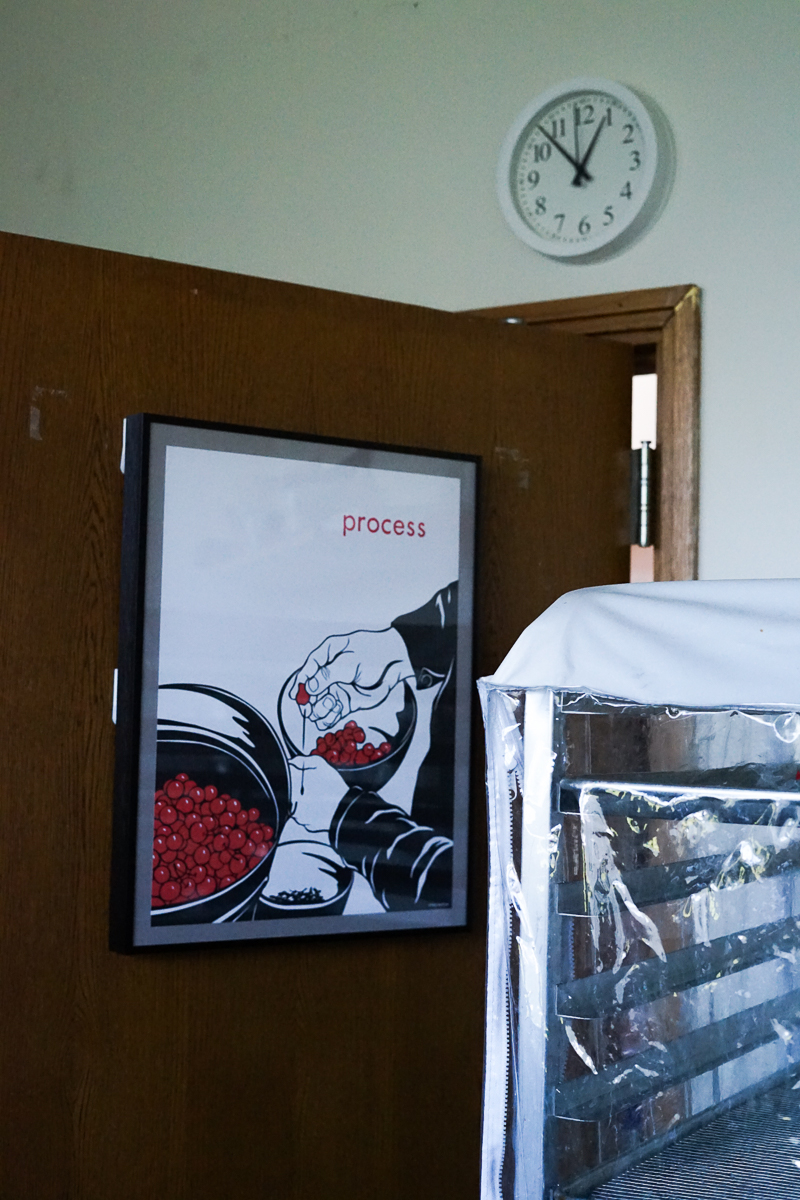
What does jam mean to you, and why do you make it?
Trade Street Jam Co.: Since our inception, we've been on a mission to introduce the world to a concept bigger than sugary jam on toast. Because there's so much more to jam than that. We're so grateful that our concept has since caught on with people all across the nation. We love to see our jams being used in unique ways in the kitchen—anything from cocktails, baked goods, meat glazes, yogurt, oatmeal, salad dressings and more! Most jams on the market today are loaded with pectin, thickeners, stabilizers and extra sugar that makes it difficult for consumers to buy a product that both tastes good and is good for them. Creating health conscious products that don't compromise on taste or quality is what drives us to do what we do. Cooking should be fun and reflective of the person at hand, but what it shouldn't be, is complicated.
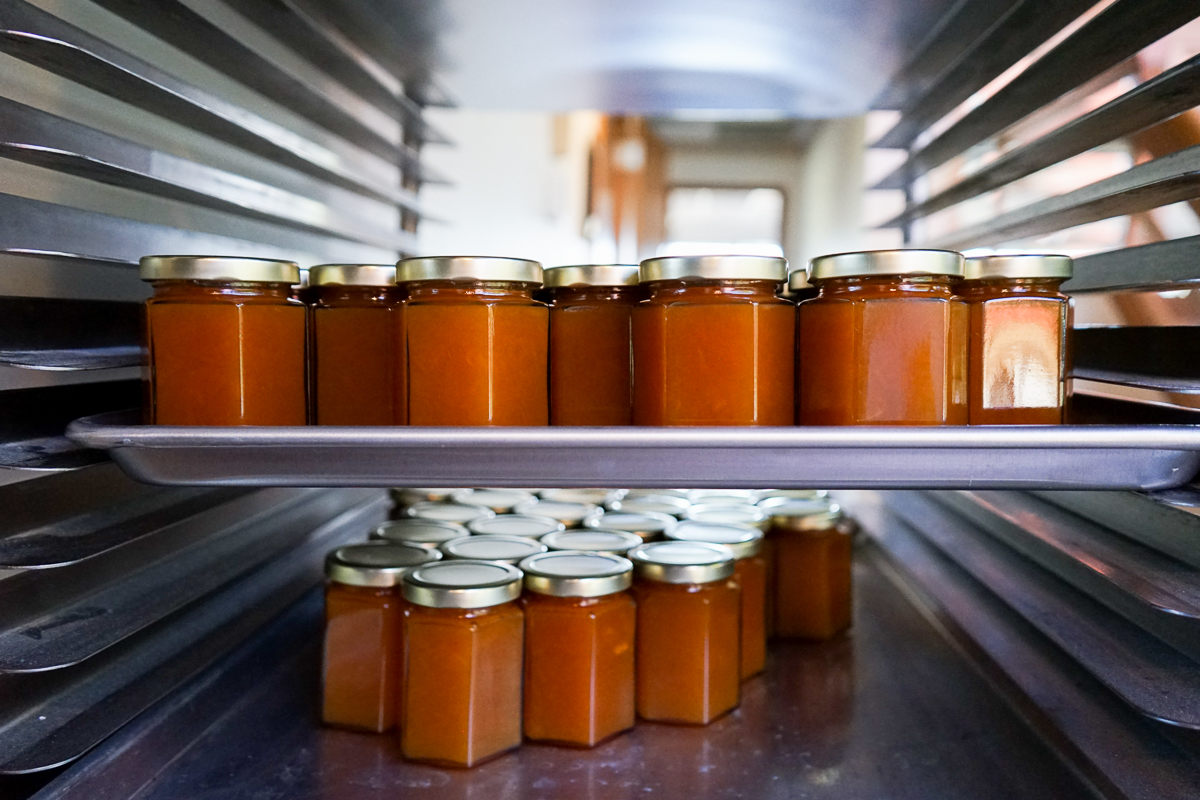
Jamboree Jams: Jam really started for me as a focused project when I couldn't get a job one summer. And then again as a means of working towards financial and professional autonomy after a dark experience working as an assistant in the music industry. It's been instrumental in my self-actualization and in building my confidence. I also love fruit very much and enjoy learning more about it every year and find the seasonal rotation very soothing. And then I have familial ties to jam as my grandmother made raspberry jam every summer using the raspberries from her garden and I loved eating it as a kid and could really notice the difference between homemade jam and store-bought stuff.
INNA: I make jam because fruit is extraordinary and it’s a total privilege to be able to work with the rich, delicious, sensuous diversity of fruit. I make jam because it’s incredibly gratifying to create a thing and share it with people. I make jam because it brings joy to people, and when they taste jam they smile, it’s a good thing, a net positive.
BRINS: The company started as a result of care packages I received from family back home in Louisiana, so making jam was a way to both continue to enjoy a little taste of home long after the ingredients themselves would have been able to be utilized individually as well as share those flavors with others. Food is meant to be shared, so we like to think that our jam brings both flavors & people together.
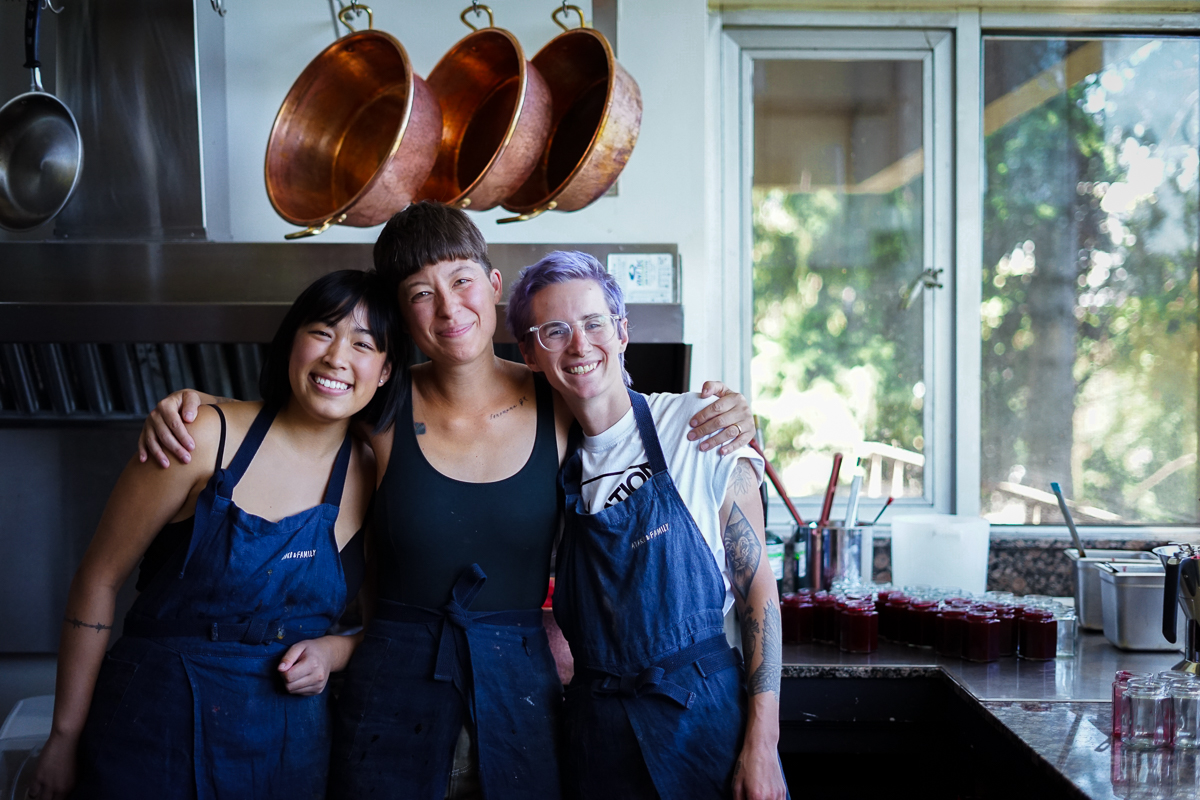
Explore the full series.
Part 1: Save the Jam
Part 2: Jammy Business
Part 3: For the Love of Jam (you're here!)
Sign up for Currantly, our newsletter delivering original food stories and news analysis, with surprise treats of freshly curated recipes and product drops. Think of it as your monthlyish digest to deepen your stance on food issues and be creatively inspired.
Currant is an independent food media collective, sustained by our readers and global community. Sign up to join today.
For Climate, Changed: Writing and reporting by Sarah Cooke. Graphic design and direction by Clare Lagomarsino. Editing, web design, and photography by Vicky Gu.
Sign up for Currantly, our monthlyish newsletter delivering original food stories and news analysis, plus fresh curations of recipes and product drops.
© Currant Collective. All rights reserved.
Logo & type branding by Unspoken Agreement.
Site design by Skin Contact.
